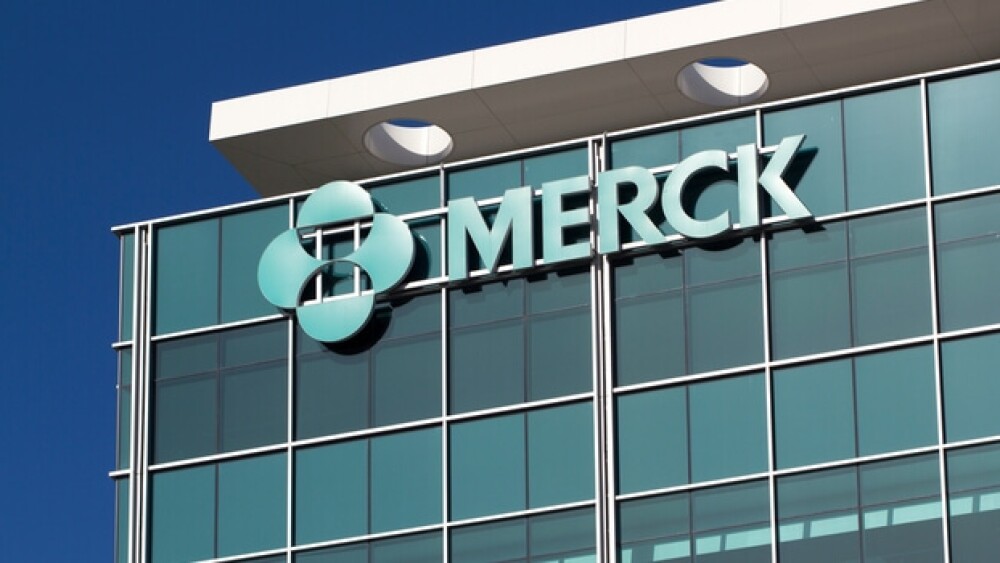On Thursday, the company said the U.S. Food and Drug Administration wants to see additional data beyond the Phase III study announced last year.
Tada Images/Shutterstock
Merck will have to wait to see if a COVID-19 therapeutic gained in November through the $425 million acquisition of OncoImmune can receive Emergency Use Authorization (EUA). On Thursday, the company said the U.S. Food and Drug Administration wants to see additional data beyond the Phase III study announced last year.
In a 10-K report filed with the U.S. Securities and Exchange Commission Thursday, Merck said the regulatory agency is seeking additional data regarding MK-7110 (formerly known as CD24Fc), which means the company will not provide a supply of the medication during the first half of this year as initially expected.
“Merck received feedback from the FDA that additional data, beyond the study conducted by OncoImmune, would be needed to support a potential EUA application. Based on this FDA feedback, Merck no longer expects to supply the U.S. government with MK-7110 in the first half of 2021,” the company said in its filing.
In September 2020, two months ahead of Merck’s acquisition, OncoImmune reported positive topline findings from an interim efficacy analysis of a Phase III study evaluating MK-7110 that showed patients with severe or critical COVID-19 treated with a single dose of CD24Fc showed a 60% higher probability of improvement in clinical status, as defined by the protocol, compared to placebo. The risk of death or respiratory failure was reduced by more than 50%, according to the interim data. The interim data was released based on 75% of planned enrollment in the study. Full results from the study were received earlier this month. Merck said the data was consistent with the topline results and plans to submit the data to a publication soon.
Despite that Phase III data, the FDA wants more information before granting EUA. Merck said it is “actively working with FDA to address the agency’s comments.” The company did not provide any timeline for when that data could be submitted to the FDA for possible EUA.
MK-7110, which had been dubbed Saccovid, is an investigational immunomodulator targeting the innate immune system. Before being aimed at COVID-19, the asset was being studied for the prevention of graft versus host disease (GVHD) following hematopoietic stem cell transplantation in leukemia patients. A pivotal Phase III clinical trial for prophylaxis of GVHD had been initiated nationwide.
For Merck, the setback with MK-7710 comes about a month after the company shuttered its COVID-19 vaccine programs in order to focus on the development of therapeutics for the pandemic. The company decided to axe its vaccine development after Phase I data showed immune responses were inferior to what was observed in people who recovered naturally from COVID-19 infections. Merck was late to the COVID-19 vaccine development game. Merck jumped into the vaccine development program with its May 2020 acquisition of Austria-based Themis.
In addition to MK-7710, Merck has another therapeutic asset for COVID-19 dubbed MK-4482. At the same time Merck acquired Themis, the company and Florida-based Ridgeback Therapeutics teamed up to develop MK-4482 (formerly known as EIDD-2801). MK-4482 is an orally available antiviral candidate for the treatment of COVID-19. In preclinical studies, MK-4482 demonstrated antiviral properties against SARS-CoV-2. Molnupiravir is currently being evaluated in Phase II/III clinical trials in both the hospital and out-patient settings. The studies are expected to be completed in May of this year. Initial efficacy data is expected in the first quarter of this year.





